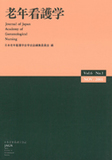Japanese
English
- 販売していません
- Abstract 文献概要
- 参考文献 Reference
本研究では,脳血管障害患者を対象に,障害によるストレスの認知的評価とコーピング行動の特徴について,援助レベルの決定や治療効果の評価として重要な指標であるADLと認知能力による違いを,退院前後の経時的変化から明らかにすることを目的に,質問紙による面接調査を行った.ADLと認知能力により障害度別に類型化された4群には以下の異なる特徴があることが明らかにされた.「軽度障害群」は対処能力が最も高いが,退院後のストレスの変化が最も大きい特徴があった.「認知障害群」は認知能力が低いため現実を認識しにくく,回復への安易な期待を抱きやすく,活動度が低下する傾向があった.「運動障害群」は支援によるADL回復や活動度の増加が満足度を高めていたが,内面では回避行動を多くとっており,自発的行動にはつながっていなかった.「重度障害群」はストレスが高く,情緒不安定な状態が長期間持続していたが,一方で,専門職が多くかかわることが,現実に立ち向かう志気を高めることになると示された.
The purpose of this study was to clarify the characteristics of cognitive appraisal of stress and coping strategy of disability on stroke victims by activity of daily living and cognitive function which are very important assessment tools for care effectiveness and support planning at before and after the discharge. The subjects were divided 4 types by ADL and cognitive function. Each type had a different characteristic. [Independent-Good Cognitive Function] had the biggest increase of stress after the discharge, even though it had the greatest coping function. [Independent-Poor Cognitive Function] hardly recognized their situation because of poor cognition, easily expected recovery and tended to decrease activities. [Dependent-Good Cognitive Function] had the highest QOL, because they had improvement of ADL and increase activities by caregiver. On the other hand, they had frequent palliative coping and poor confrontive coping. [Dependent-Poor Cognitive Function] had the highest stress and was emotionally instable for long time. Support and care by professionals affected to raise their moral to confront hardship on the other side.
Copyright © 2001, Japan Academy of Gerontological Nursing All rights reserved.


